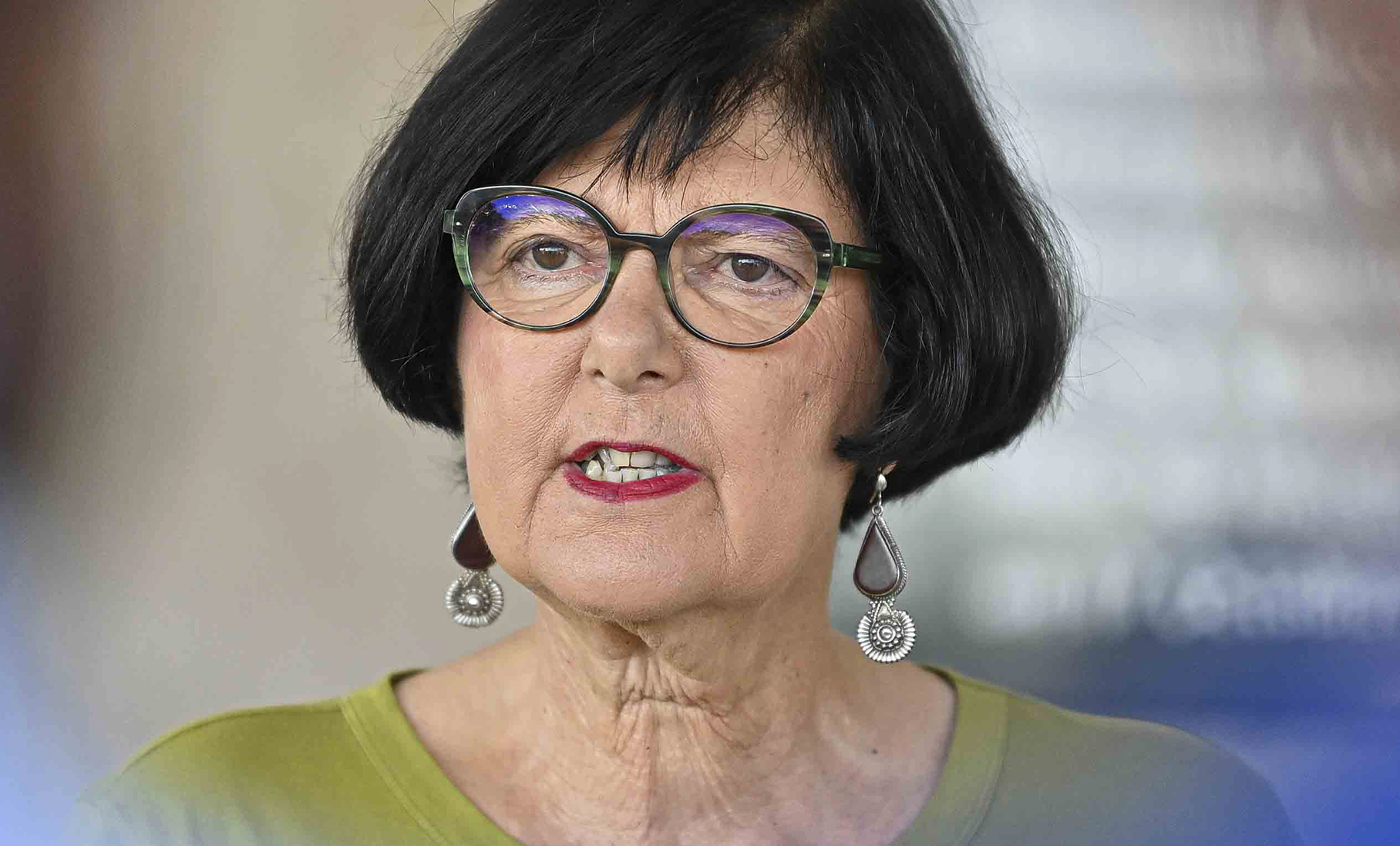When Daily Maverick asked Arnoud Dekkers, the Middle East and Africa business development head of DHL Global Forwarding — the big industry “little brother” (his words, not ours) of logistics giant DHL — why the big yellow courier service was trying to be incognito at Mining Indaba, he couldn’t give a straight answer.
To be fair, he mumbled something about how expensive the stands were and how it wasn’t worth the investment when he could do all the meetings in his personal delegate capacity.
Fast forward just over a month to Transport mMinister Barbara Creecy unveiling an online request for information (RFI) platform aimed at attracting private sector participation in rail and port operations while maintaining state ownership of core infrastructure assets, and it all begins to make sense.
“Strategic infrastructure such as rail lines and ports will remain in public ownership, as assets belonging to South African people,” the minister stated during a media briefing. “At the same time, it paves the way for greater competition in rail and port terminal operations, which will attract private investment and improve our infrastructure to world-class standards.”
Initial focus on key corridors
The request for information, which goes live today and will remain open until 9 May 2025, focuses on three critical logistics corridors:
- Northern Cape to Saldanha and Nelson Mandela Bay corridors for iron ore and manganese exports.
- Limpopo and Mpumalanga to Richards Bay corridor for coal and chrome exports.
- Intermodal supply chains focused on container and automotive sectors.
These corridors represent the backbone of South Africa’s mining export infrastructure, which has suffered from declining performance, theft and vandalism, under-investment, and operational inefficiencies.
“The mining logistics market is projected to grow from $462-billion in 2025 to $617-billion in 2030. That’s a compounded annual growth of 5.95%,” Dekkers said in February. “With that you will require logistics, you require equipment, you require people, talent, everything in order to facilitate that growth.”
Capitalising on the Gulf stream
Dekkers’ market growth estimates were a little off, with other research sources expecting a Compound Annual Growth Rate of 14.9% from 2024 to 2030.
He is spot-on about the opportunity, though, with the Minerals Council of South Africa affirming the need for logistics improvement in a January statement that contextualised the headwinds: “To ensure the future and sustainability of the South African mining industry, it must have a stable, predictable and investor-friendly regulatory environment as well as a sound operating environment, including reliable and functional rail and port logistics, uninterrupted electricity supply at globally competitive prices, and certainty around water supply.”
Dekkers pointed to growing investment interest from Gulf countries, which he noted in conversations at the Future Minerals Forum in Riyadh earlier this year.
“Africa is a very resource-rich environment which aligns with Saudi Arabia’s vision for 2030,” he explained.
“The Gulf has invested around $53-billion in African projects to date, presenting key opportunities to harness this capital for sustainable infrastructure and mining inventions.”
Reform the key to staying competitive
His comments about logistics partnerships appear particularly relevant as DHL has already pioneered such arrangements elsewhere on the continent.
“We have partnered up with Cameroon Mining Company. Global Forwarding is aiming to manage 40% of Cameroon Mining’s monthly iron ore production,” Dekkers revealed. “The partnership streamlines operations with new infrastructure, larger vessels — boosting Cameroon's mining export capacity.”
Creecy seemed to have a psychic connection to the DHL strategy when explaining that the privatisation process would follow strict principles, including:
- Reforming Transnet in accordance with the Cabinet-approved Roadmap for Freight Logistics.
- Ensuring a Just Transition with maximum job retention.
- Safeguarding state ownership of immovable assets.
- Promoting localisation and industrialisation.
- Supporting Broad-Based Black Economic Empowerment and gender equality.
The department has established an interim Private Sector Participation Unit and is finalising an agreement with the Development Bank of Southern Africa to host a permanent unit.
Immediate rehabilitation needs
While the Private Sector Participation process unfolds, Creecy acknowledges that immediate action is needed.
Independent technical assessments have been completed for the export coal rail network from Mpumalanga to Richards Bay and the iron ore corridor from Sishen to Saldanha.
She went on to remind the media of the multiple funding sources for immediate rehabilitation, including Transnet's current budget, the National Treasury’s budget facility for infrastructure, and private investment through existing customer agreements.
Dekkers, however, was quick to say that logistics companies must adapt to new technologies and sustainability requirements to support modern mining operations.
“Our continued investment in energy and infrastructure along with digital technologies, which includes sustainable practices... we anticipate will drive demand for specialised logistic services,” he said.
“It means offering lower emission transport solutions, AI-driven route optimisation, autonomous haulage systems, smart inventory management... which will enable Scope 3 monitoring, reporting, reduction and redefining logistics efficiencies.”
How this affects you
At a broad level, improved logistics could reduce transport bottlenecks, cutting costs for businesses that rely on moving goods. Cheaper goods movement could translate to lower prices for end consumers, particularly on imported or exported goods. The downfall is that if the reforms take too long, inefficiencies could continue pushing up inflation in the short term.
A new logistics reality
Looking ahead, Dekkers identified several challenges facing logistics partners in Africa.
“The first one obviously is geopolitical issues. Geopolitical issues are always a factor,” he said.
“Whether it may be confrontations between two countries or internal... that could be with the change in government obviously, which has an adverse effect on fuel price which then would negatively affect us.”
This request for information process marks the first stage in what will become a formal Request for Proposals in August 2025, with the transport ministry promising that all information submitted will be treated with strict confidentiality.
We will never know whether Dekkers and Creecy spoke to each other. DM





